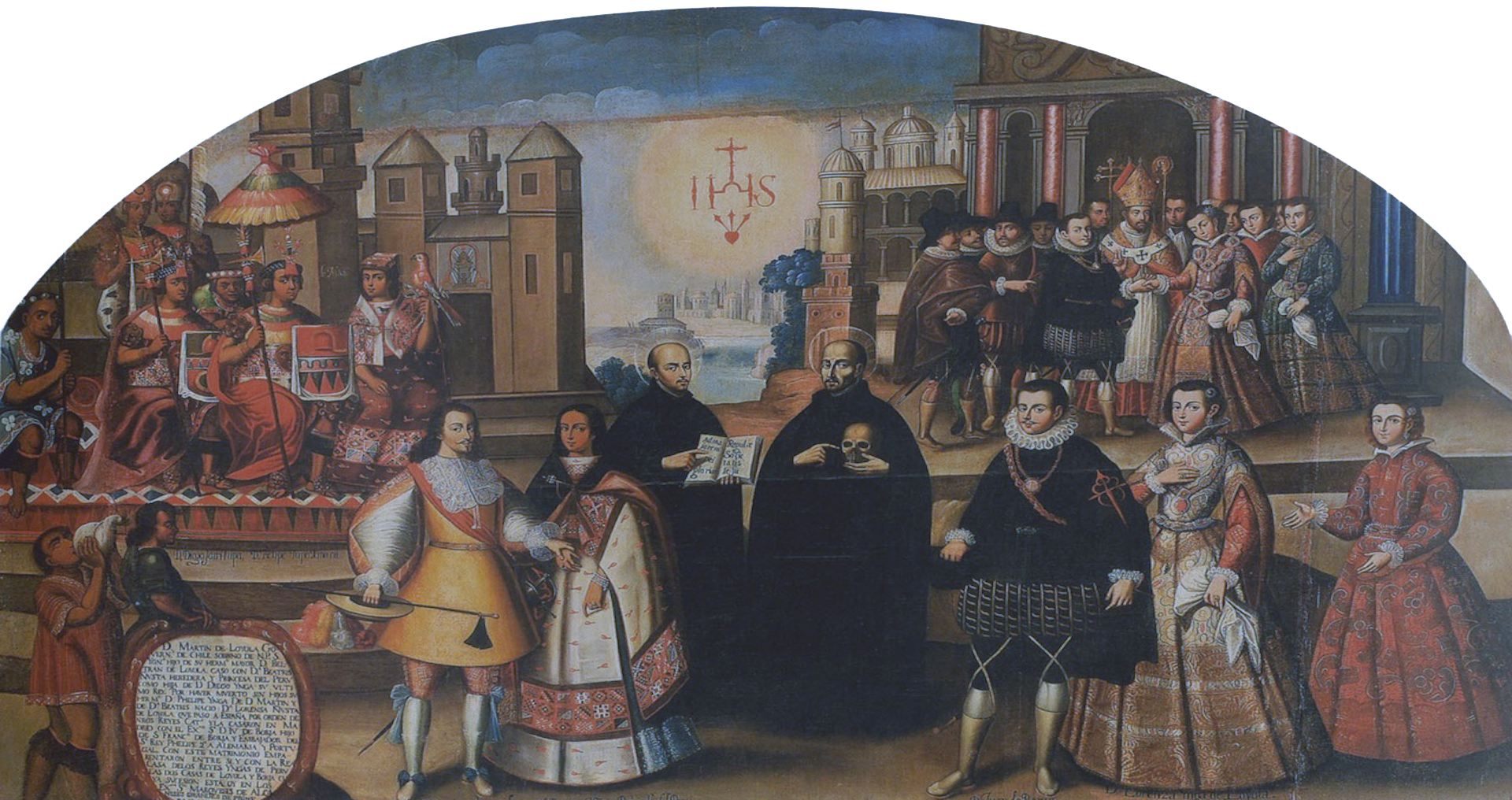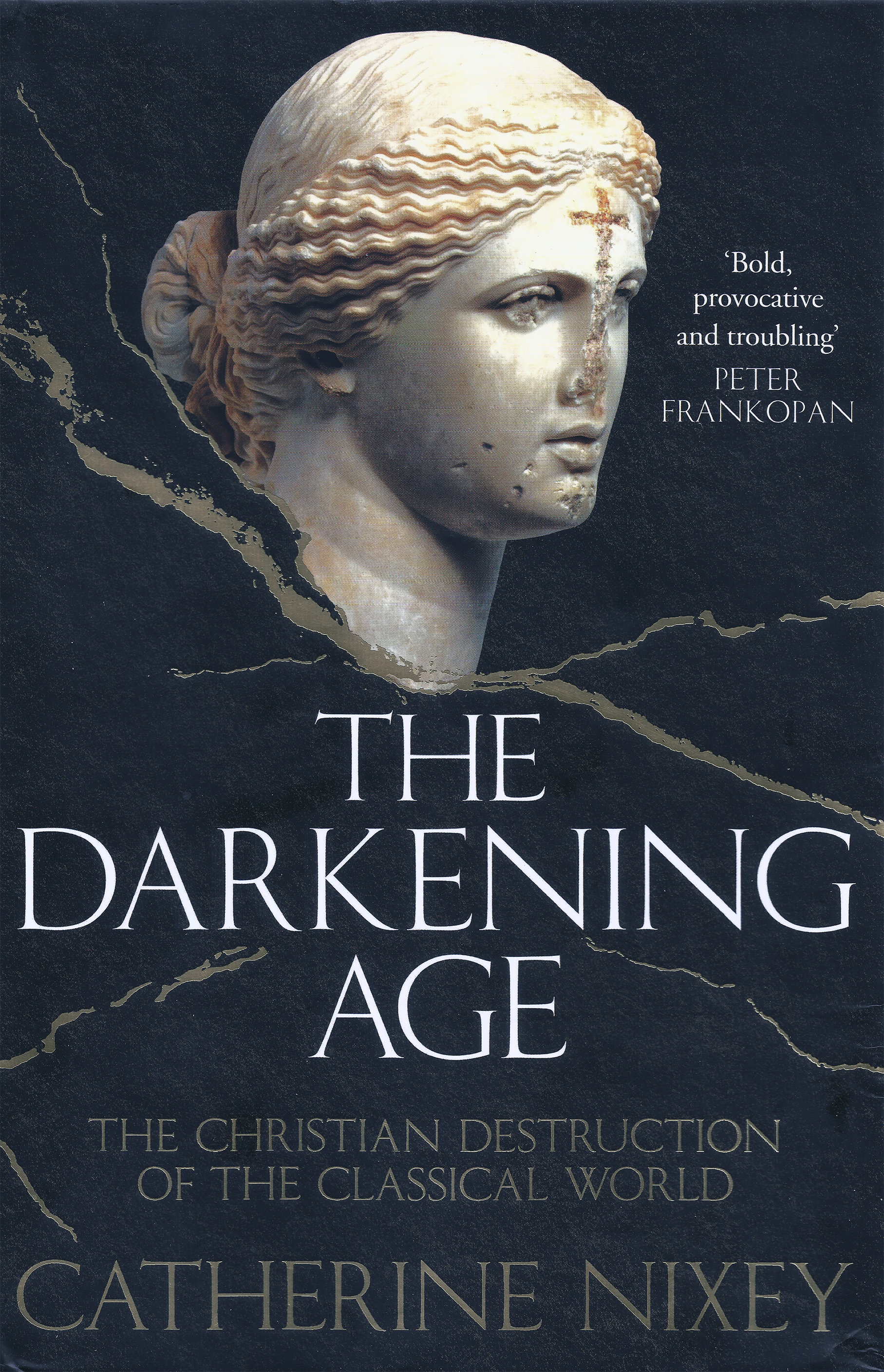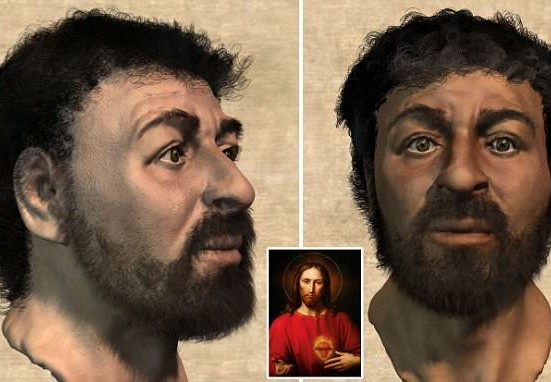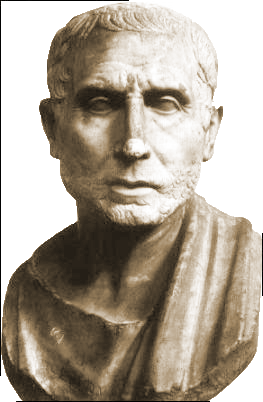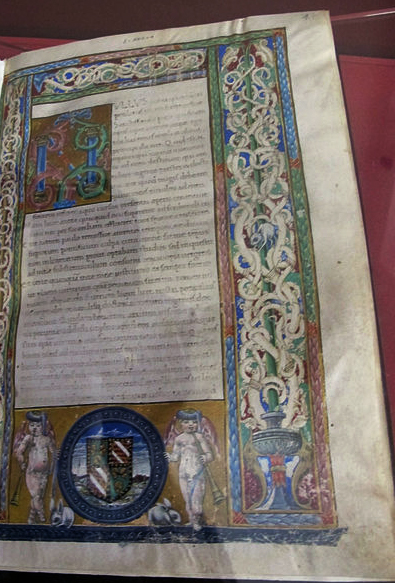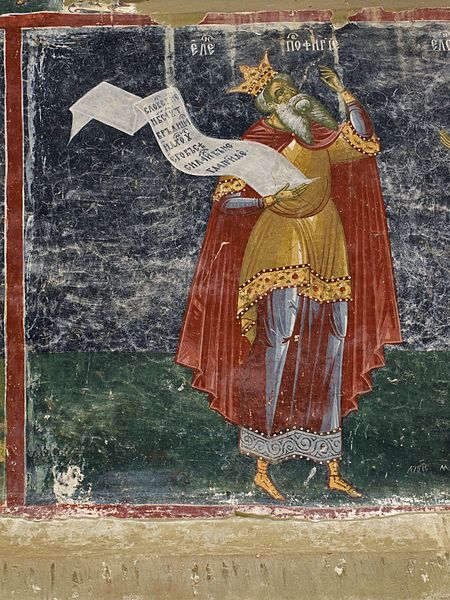Below, abridged translation from the first
volume of Karlheinz Deschner’s Kriminalgeschichte
des Christentums (Criminal History of Christianity)
______ 卐 ______
Chapter 3:
First malicious acts of Christians against Christians
‘No heretic is a Christian. But if he is not a Christian, every heretic is a devil.’ ‘Cattle for the slaughter of hell.’
—St Jerome, Doctor of the Church
In the origins of Christianity there was no ‘true faith’
The Church teaches that the original situation of Christianity was of ‘orthodoxy’, that is, of ‘true faith’; later, the ‘heresy’ would appear (de aíresis = the chosen opinion)… In classical literature it was called ‘heresy’ any opinion, whether scientific, political or from a religious party. Little by little, however, the term took on the connotation of the sectarian and discredited.
Now, the scheme ‘original orthodoxy against overcoming heresy’, essential to maintain the ecclesiastical fiction of an allegedly uninterrupted and faithfully preserved apostolic tradition, is nothing more than an a posteriori invention and as false as that same doctrine of the apostolic tradition. The historical model according to which Christian doctrine, in its beginnings, was pure and true, then contaminated by heretics and schismatics of all epochs, ‘the theory of deviationism’, as the Catholic theologian Stockmeier has written, ‘does not conform to any historical reality’.
Such a model could not be true in any way, because Christianity in its beginnings was far from being homogeneous; there existed only a set of beliefs and principles not very well established. It still ‘had no definite symbol of faith (a recognised Christian belief) nor canonical Scriptures’ (E.R. Dodds). We cannot even refer to what Jesus himself said, because the oldest Christian texts are not the Gospels, but the Epistles of Paul, which certainly contradict the Gospels in many essential points, not to mention many other problems of quite transcendence that arise here.
The early Christians incorporated not one, but many and very different traditions and forms. In the primitive community there was at least one division, as far as we know, between the ‘Hellenizing’ and the ‘Hebrew’. There were also violent discussions between Paul and the first original apostles… Ever since, every tendency, church or sect, tends to be considered as the ‘true’, the ‘unique’, authentic Christianity. That is, in the origins of the new faith there was neither a ‘pure doctrine’ in the current Protestant sense, nor a Catholic Church. It was a Jewish sect separated from its mother religion…
At the end of the second century, when the Catholic Church was constituted, that is, when the Christians had become a multitude, as the pagan philosopher Celsus joked, divisions and parties began to emerge, each of which called for their own legitimacy, ‘which was what they intended from the outset.’
And as a result of having become a multitude, they are distant from each other and condemn each other, to the point that we do not see that they have anything in common except the name, since otherwise each party believes in its own and has nothing in the beliefs of others.
At the beginning of the third century, Bishop Hippolytus of Rome cites 32 competing Christian sects which, by the end of the fourth century, according to Bishop Philastrius of Brescia, numbered 128 (plus 28 ‘pre-Christian heresies’). Lacking political power, however, the pre-Constantinian Church could only verbally vent against the ‘heretics’, as well as against the Jews. To the ever-deeper enmity with the synagogue, were thus added the increasingly odious clashes between the Christians themselves, owing to their doctrinal differences.
Moreover, for the doctors of the Church, such deviations constituted the most serious sin, because divisions, after all, involved the loss of members, the loss of power. In these polemics the objective was not to understand the point of view of the opponent, nor to explain the own, which perhaps would have been inconvenient or dangerous. It would be more accurate to say that they obeyed the purpose ‘to crush the contrary by all means’ (Gigon). ‘Ancient society had never known this kind of quarrel, because it had a different and non-dogmatic concept of religious questions’ (Brox).
First ‘heretics’ in the New Testament
Paul the fanatic, the classic of intolerance, provided the example of the treatment that would be given by Rome to those who did not think like her, or rather, ‘his figure is fundamental to understand the origin of this kind of controversy’ (Paulsen).
 This was demonstrated in his relations with the first apostles, without excepting Peter. Before the godly legend made the ideal pair of the apostles Peter and Paul (still in 1647, Pope Innocent X condemned the equation of both as heretical, while today Rome celebrates its festivities the same day, June 29), the followers of the one and the other, and themselves, were angry with fury; even the book of the Acts of the Apostles admits that there was ‘great commotion.’
This was demonstrated in his relations with the first apostles, without excepting Peter. Before the godly legend made the ideal pair of the apostles Peter and Paul (still in 1647, Pope Innocent X condemned the equation of both as heretical, while today Rome celebrates its festivities the same day, June 29), the followers of the one and the other, and themselves, were angry with fury; even the book of the Acts of the Apostles admits that there was ‘great commotion.’
Paul, despite having received from Christ ‘the ministry of preaching forgiveness’, contradicts Peter ‘face to face’, accuses him of ‘hypocrisy’ and asserts that with him, ‘the circumcised’ were equally hypocrites. He makes a mockery of the leaders of the Jerusalem community, calling them ‘proto-apostles’, whose prestige he says nothing matters to them, since they are only ‘mutilated’, ‘dogs’, ‘apostles of deceit.’ He regrets the penetration of ‘false brethren’, the divisions, the parties, even if they were declared in his favour, to Peter or to others.
Conversely, the primitive community reproached him those same defects, and even more, including greed, accusing him of fraud and calling him a coward, an abnormal and crazy, while at the same time seeking the defection of the followers. Agitators sent by Jerusalem break into his dominions, even Peter, called ‘hypocrite’, faces in Corinth the ‘erroneous doctrines of Paul’. The dispute did not stop to fester until the death of both and continued with the followers.
Paul, very different to the Jesus of the Synoptics, only loves his own. Overbeck, the theologian friend of Nietzsche who came to confess that ‘Christianity cost my life… because I have needed my whole life to get rid of it’, knew very well what was said when he wrote: ‘All beautiful things of Christianity are linked to Jesus, and the most unpleasant to Paul. He was the least likely person to understand Jesus’.
To the condemned, this fanatic wants to see them surrendered ‘to the power of Satan’, that is to say, prisoners of death. And the penalty imposed on the incestuous Corinth, which was pronounced, by the way, according to a typically pagan formula, was to bring about its physical annihilation, similar to the lethal effects of the curse of Peter against Ananias and Sapphira.
Peter and Paul and Christian love! Whoever preaches another doctrine, even if he were ‘an angel from heaven’, is forever cursed. And he repeats, tirelessly, ‘Cursed be…!’, ‘God would want to annihilate those who scandalize you!’, ‘Cursed be everyone who does not love the Lord’, anatema sit that became a model of future Catholic bulls of excommunication. But the apostle was to give another example of his ardour, to which the Church would also set an example.
In Ephesus, where ‘tongues’ were spoken, and where even the garments used by the apostles heal diseases and cast out devils, many Christians, perhaps disillusioned with the old magic in view of the new wonders, ‘collected their books and burned them up in the presence of everyone. When the value of the books was added up, it was found to total fifty thousand silver coins. In this way the word of the Lord spread widely and grew in power.’
The New Testament already identifies heresy with ‘blasphemy against God’, the Christian of another hue with the ‘enemy of God’; and Christians begin to call other Christians ‘slaves of perdition’, ‘adulterous and corrupted souls’, ‘children of the curse’, ‘children of the devil’, ‘animals without reason and by nature created only to be hunted and exterminated’, in which the saying that ‘the dog always returns to his own vomit’ and ‘the pig wallows in his own filth’ is confirmed.
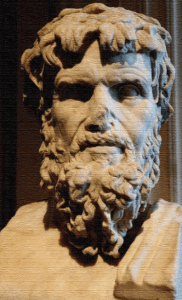 It is always good to reread the classics, especially now that we have realised that American white nationalism is irredeemable because of its Christianity and neochristianity (cf. the previous posts).
It is always good to reread the classics, especially now that we have realised that American white nationalism is irredeemable because of its Christianity and neochristianity (cf. the previous posts).